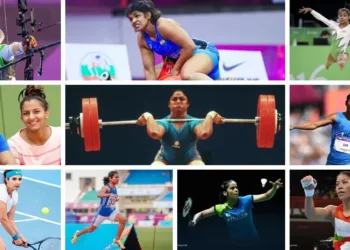The Asia Cup 2025 trophy controversy continues to unfold weeks after India’s historic victory over Pakistan in the final, with the coveted silverware remaining locked away in the Asian Cricket Council (ACC) office in Dubai. What began as a dramatic post-match standoff has evolved into a complex diplomatic and administrative deadlock that threatens to overshadow one of cricket’s most significant continental triumphs.
Table of Contents
The Current Status of Asia Cup 2025 Trophy
Contrary to widespread speculation that ACC president Mohsin Naqvi took the trophy to Pakistan, the reality is markedly different. The Asia Cup 2025 silverware currently sits secured in the ACC office within the ICC Academy complex in Dubai, under strict instructions from Naqvi himself.

India’s refusal to accept the trophy from Naqvi on September 28 has created an unprecedented situation in international cricket. The Pakistani official, who also serves as chairman of the Pakistan Cricket Board (PCB), has reportedly issued directives to the ACC’s two-person staff that the trophy must not be moved without his explicit authorization.
Key Timeline of Events
| Date | Event | Status |
|---|---|---|
| September 28, 2025 | India defeats Pakistan in Asia Cup final | Trophy withheld from ceremony |
| September 29, 2025 | Initial reports emerge about trophy location | Confusion over whereabouts |
| September 30, 2025 | ACC Annual General Meeting held | Deadlock discussion initiated |
| November 4-7, 2025 | Scheduled ICC quarterly meeting | Resolution attempt planned |
The Naqvi Insistence and Its Implications
The core issue revolves around Mohsin Naqvi’s steadfast insistence that the Asia Cup 2025 trophy must be personally received from him by the Indian team. This demand has created a diplomatic impasse that extends far beyond cricket’s traditional boundaries.
Naqvi’s dual role as ACC president and Pakistan’s Interior Minister has complicated the situation significantly. His political position makes any ceremonial handover to India a matter of national and international diplomacy rather than simple sporting protocol.
ACC Office Security Measures
The ACC office housing the trophy operates with minimal staffing, comprising just two employees who manage the organization’s day-to-day operations. The office’s location within the ICC Academy complex in Dubai provides secure storage, but the political restrictions placed on the trophy’s movement have effectively made it a prisoner of diplomatic tensions.
Security Protocol Currently in Place:
- Trophy locked in ACC office vault
- Two-person staff under strict instructions
- No movement authorized without Naqvi’s approval
- Location: ICC Academy complex, Dubai
The Scheduled Resolution Attempt
The ACC Annual General Meeting on September 30 established a framework for addressing the crisis, with the five Test-playing nations under the ACC umbrella agreeing to deliberate on the matter. India, Pakistan, Sri Lanka, Bangladesh, and Afghanistan are set to convene during the ICC’s quarterly gathering scheduled for November 4-7 in Dubai.
However, significant uncertainty surrounds Naqvi’s participation in these crucial discussions. His absence from the ICC Annual Conference in July has raised concerns among ACC members about his commitment to finding a diplomatic solution.
Potential Complications Ahead
| Scenario | Likelihood | Impact on Resolution |
|---|---|---|
| Naqvi attends November meeting | Moderate | Possible breakthrough |
| Naqvi sends representative | High | Continued deadlock |
| BCCI escalates diplomatically | High | International intervention |
| Status quo maintained | Moderate | Prolonged controversy |
BCCI’s Position and Future Action
The Board of Control for Cricket in India (BCCI) finds itself in a unique position, balancing national pride with cricket administration protocols. BCCI officials have indicated they are preparing their strategy for the upcoming ICC conference, where they plan to formally address Naqvi’s conduct.

India’s cricket board possesses considerable influence within international cricket circles and may leverage this authority to ensure the rightful handover of the trophy. The BCCI’s approach will likely determine whether this controversy remains a bilateral issue or escalates to involve broader cricket governance.
BCCI’s Strategic Options
The BCCI has several potential courses of action at their disposal:
Diplomatic Channels: Working through ICC protocols to pressure the ACC into resolving the matter through proper administrative channels.
Administrative Pressure: Utilizing India’s significant position in world cricket to influence ACC decision-making processes.
Alternative Recognition: Potentially commissioning a replica trophy while pursuing the original through official channels.
International Support: Building consensus among other cricket boards to isolate Pakistan’s position diplomatically.
Historical Context and Precedent
This unprecedented situation marks the first time in Asia Cup history that a winning team has been denied their trophy due to political considerations. The tournament, established to promote cricket diplomacy in the region, now finds itself at the center of the very tensions it was designed to ease.
India’s ninth Asia Cup title represents a significant milestone in their continental dominance, making the trophy’s symbolic importance even greater. The team’s unbeaten campaign under Suryakumar Yadav’s captaincy deserves proper recognition, yet political maneuvering has overshadowed sporting achievement.
Impact on Future Tournaments
The resolution of this controversy will likely establish important precedents for future international cricket tournaments. Questions of political neutrality in cricket administration and the separation of sporting and political roles have been thrust into sharp focus.
The November Crossroads
The ICC’s quarterly meeting from November 4-7 represents the most realistic opportunity for resolving this impasse. However, the success of these discussions depends heavily on the willingness of all parties to prioritize cricket over politics.
India’s delegation will likely arrive with clear demands for the trophy’s immediate handover, while Pakistan’s representation remains uncertain. The presence or absence of Naqvi himself could determine whether progress is possible or if the deadlock continues indefinitely.
Possible Meeting Outcomes
Best Case Scenario: Naqvi agrees to transfer the trophy through appropriate ICC channels, allowing India to receive their rightful prize without compromising their principles.
Compromise Solution: A neutral ICC official facilitates the handover, removing political considerations from the ceremonial aspects.
Continued Standoff: Naqvi maintains his position, forcing the ICC to consider administrative intervention or sanctions.
Escalation: The controversy expands to involve broader diplomatic channels beyond cricket administration.
Looking Ahead: Cricket vs. Politics
The Asia Cup 2025 trophy controversy represents more than a simple administrative dispute; it embodies the ongoing challenge of maintaining sporting neutrality in a politically charged environment. India’s position reflects their broader diplomatic stance, while Naqvi’s insistence demonstrates the difficulty of separating individual political roles from cricket administration.
The eventual resolution will likely influence how future tournaments handle similar political tensions. The ICC and ACC must establish clearer protocols for managing situations where political considerations threaten sporting integrity.

The trophy currently gathering dust in Dubai serves as a tangible reminder that cricket, despite its unifying potential, cannot entirely escape the political realities of the regions it represents. India’s championship achievement deserves proper recognition, and the cricket world watches to see whether diplomatic wisdom will prevail over political posturing.
Read More: Marnus Labuschagne Replaces Injured Cameron Green in Australia ODI Squad vs India
FAQs
Where is the Asia Cup 2025 trophy currently located?
The trophy is locked in the ACC office within the ICC Academy complex in Dubai, under strict instructions from ACC president Mohsin Naqvi.
Why won’t India accept the trophy from Mohsin Naqvi?
India refuses to receive the trophy from Naqvi due to his dual role as Pakistan’s Interior Minister and his political positions that conflict with Indian interests.
When is the next opportunity for resolving this issue?
The ICC’s quarterly meeting scheduled for November 4-7, 2025, in Dubai represents the next formal opportunity for resolution discussions.
Can the BCCI take any action to retrieve the trophy?
The BCCI plans to formally protest at the ICC conference and may use India’s influence in world cricket to pressure for a resolution.
Has anything like this happened before in cricket history?
Has anything like this happened before in cricket history? A: This is the first time in Asia Cup history that a winning team has been denied their trophy due to political considerations involving tournament officials.








